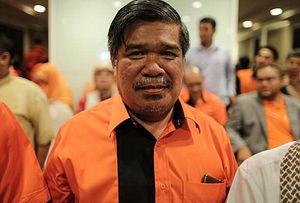In early November, Malaysia concluded another joint military exercise between its armed services. While the holding of the exercise itself was a routine development, it nonetheless highlighted some of the ongoing activity underway with respect to defense policy in the Southeast Asian state amid wider domestic and regional developments.
The unprecedented ouster of the Barisan National (BN) government last May under Najib Razak and the coming to power of the new PH government had raised questions about how Malaysia would approach a range of domestic and foreign policy issues, including in the defense realm. Over the past year, the spotlight has been on the evolution of aspects of Malaysia’s defense policy, including its hierarchy of priorities, its mix of alignments, as well as inroads it has been making in developing its capabilities.
Last week, Malaysia’s defense policy was in the headlines again with the conclusion of another joint military exercise. The exercise, which concluded on November 7, represented the closing of a two-week long exercise and involved the three main branches of the Malaysian Armed Forces.
The Warrior Exercise, which had begun on October 24, featured the Royal Malaysian Army, the Royal Malaysian Air Force, and Royal Malaysian Navy. The exercise took place in various states of the country including Negeri Sembilan, Johor, Sabah, and Sarawak and aspects of it were witnessed by top Malaysian defense officials, including the chiefs of all three services as well as Malaysian Defense Minister Mohamad Sabu.
According to Malaysia’s national news agency Bernama, speaking to reporters after witnessing the Rocket Artillery Brigade Static Exhibition at Wisma Samudera at the RMN’s Lumut Base, Mohamad said that 2,314 officers and personnel from all three branches participated in the exercise, with the exercise having “demonstrated the use of MAF assets and the military’s ability to always be in a state of readiness to safeguard national security and sovereignty.”
Mohamad also touched on other aspects of the country’s defense policy in his remarks. These included ensuring that the people stayed informed about the MAF’s duties and role in maintaining national security, the attention on welfare and veteran’s issues, and the state of some key defense deals for the country. While policies in these areas are still playing out within the new PH government’s policies, some of these aspects are expected to be discussed in greater detail with the release of Malaysia’s upcoming defense white paper.































